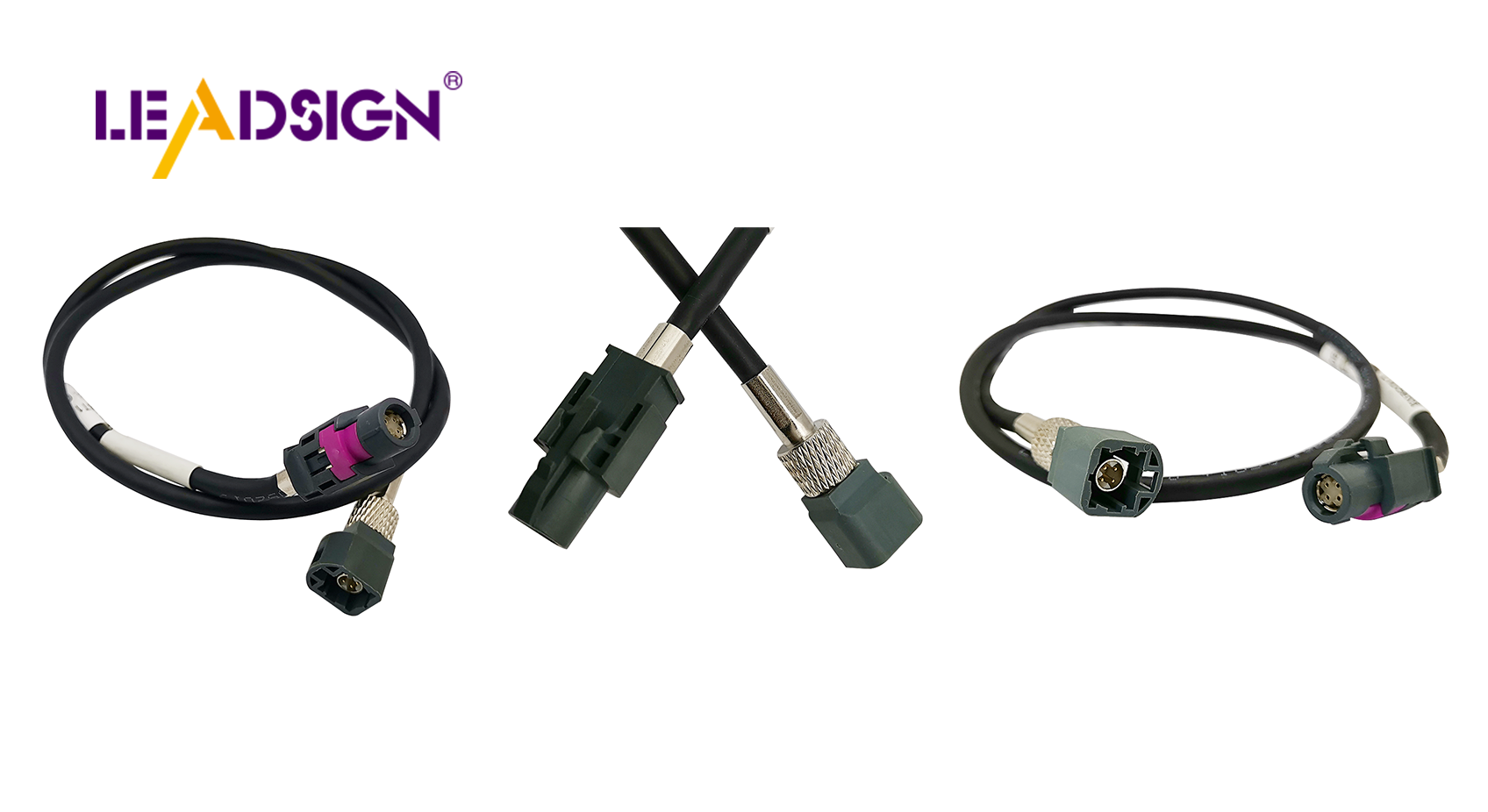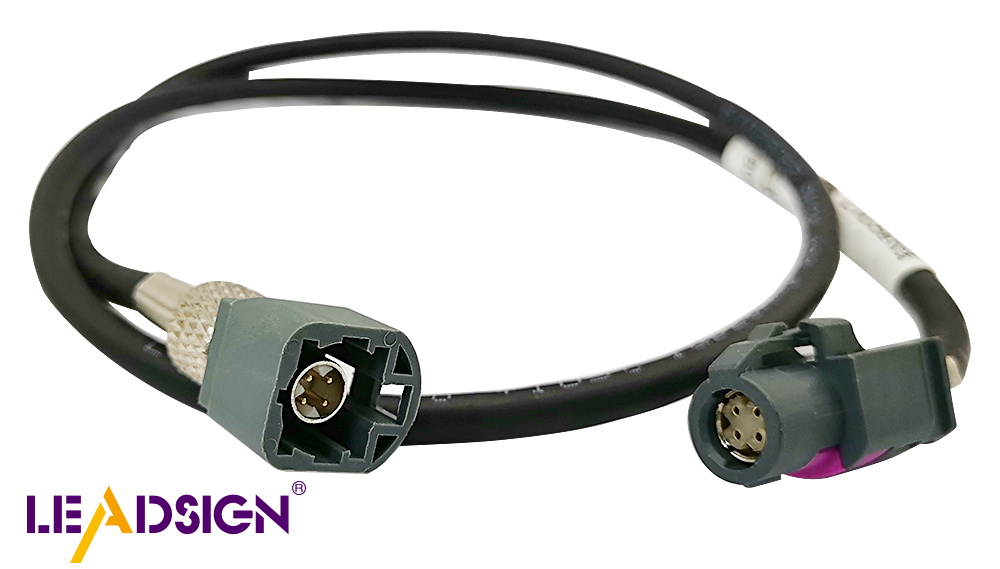How to Install Auto Wire Connector Types for Reliable Connections

In cars, good wire connections are important. They help your car's electrical systems work well. You might ask how to make them reliable. The key is knowing auto wire connector types. These connectors keep connections strong and stable. This guide will show you how to install them, helping you make lasting connections.
Picking the Right Auto Wire Connectors
Choosing the right wire connectors is very important. It helps keep your car's wires safe and working well. Let's learn about these connectors and what to think about when picking them.
Knowing Auto Wire Connectors
There are different types of auto wire connectors. Each type does something special and has its own benefits.
Butt Connectors
Butt connectors join two wires together. They are easy to use and make a strong connection. Just put the wire ends in the connector and squeeze it tight. They are good for making wires longer or fixing broken ones.
Spade Connectors
Spade connectors, also called fork connectors, are easy to connect and disconnect. They have a shape like a fork that fits under screws or blocks. Use them when you need to connect or disconnect wires often.
Ring Connectors
Ring connectors make a lasting connection. They have a round end that fits over bolts or studs. Once attached, they hold tight. Use them for grounding or where you need a strong hold.
Things to Think About When Choosing a Connector
Choosing the right connector means more than just choosing one type. You need to think about some things for a good connection.
Wire Size Match
First, check if the connector fits your wire size. Connectors come in sizes for different wires. A good fit stops loose connections.
Weather Conditions
Think about where you'll use the connector. If your car faces tough weather, like heat or rain, pick weatherproof ones. This stops rust and keeps connections strong.
Power Needs
Lastly, think about how much power will go through it. Different connectors handle different power levels. Pick one that can handle your power needs so it doesn't overheat or break.
By knowing these wire connector types and thinking about these points, you can choose wisely for safety and reliability in your car's electrical system.
Getting Ready to Install
Before you start, make sure you have everything. Being ready makes things go smoothly and safely.
Collecting Tools and Supplies
First, gather the right tools and supplies. Having them helps you work faster and better.
Wire Strippers
You need wire strippers to take off the wire cover. This tool shows the wire without hurting it. Pick a stripper that fits your wire size.
Crimping Tools
Crimping tools are needed to attach connectors to wires. They squeeze the connector onto the wire tightly. Check if your crimper works with your connectors.
Heat Shrink Tubing
Heat shrink tubing gives extra safety for connections. It seals out water and dirt. After crimping, slide it on and heat it to shrink.
Staying Safe
Safety is always first with electrical work. Follow these steps to stay safe.
Cutting Power Source
Always cut power before starting. This stops shocks or short circuits. Find the battery and take off the negative cable to stop power.
Wearing Safety Gear
Put on gloves and safety glasses. These keep you safe from sharp wires or sparks. It's an easy way to avoid getting hurt.
By getting ready well and being safe, you can install auto wire connectors successfully. This careful way not only makes it easier but also keeps your car's connections strong.
Step-by-Step Installation Process

You're ready with tools and safety gear. Let's start installing wire connectors.
Stripping the Wire
First, strip the wire for a good connection.
Measuring the Correct Length
Measure how much wire to strip. Use a ruler or tape. You need just enough bare wire to fit in the connector. Too much or too little is bad.
Using Wire Strippers Properly
Now, use your wire strippers. Place the wire in the right slot. Gently squeeze and pull off the cover. Be careful not to hurt the wires inside. A clean strip fits better.
Attaching the Connector
With stripped wire, attach the connector next.
Inserting the Wire into the Connector
Put the bare wire into the connector fully. It should touch metal inside for a strong link. If not, strip more cover off.
Crimping the Connector Securely
Use your crimping tool now. Put connector in tool's jaws and squeeze tight. This keeps it from slipping out. Check it's held well.
Securing the Connection
After attaching, make it stronger and safer.
Applying Heat Shrink Tubing
Slide heat shrink tubing over it all. Use heat gun or lighter to shrink it snugly around connector, keeping water and dirt out.
Inspecting Connection for Stability
Finally, check your work by gently pulling on wires to ensure they're secure and tubing is sealed well. A stable connection means long-lasting performance of auto connectors.
By following these steps, you can install auto connectors confidently, keeping car systems safe.
Tips for Keeping Connections Strong
To keep your car's electrical system working well, make sure connections stay strong. Here are some tips to help you do that.
Regular Checks
Check your wire connections often to stop problems before they start. Make it a habit to look at them regularly.
Looking for Damage
Look closely at connectors for damage like cracks or rust. If you see any issues, fix them right away to avoid bigger problems later.
Changing Bad Connectors
If connectors are broken, change them fast. Bad connectors can cause weak links and even power failures. Keep extra connectors nearby for quick fixes.
Good Habits for Lasting Connections
Following good habits helps keep connections strong and long-lasting.
Don't Overload Circuits
Don't put too much power through circuits. Too much power can overheat and harm connectors. Always check the power needs of your auto wire connector types and match them with your system's needs.
Use Good Insulation
Good insulation keeps connections safe from weather. Use heat shrink tubing or other covers to keep water and dirt out. This keeps your connections strong over time.
By following these tips, you can make sure that your auto wire connector types give reliable and lasting connections. Regular checks and good habits will keep your car's electrical system in great shape.
Following the steps keeps your car safe. Good wire setup stops fires or shocks. Always think about safety first. Use the right tools to make strong links. Check and fix connections often. This keeps them working well. Use these tips to keep connectors in good shape. Doing this helps your car run safely and smoothly. Remember, small efforts now stop big problems later.
See Also
Significance of HSD Connectors in Automotive Sector
Fundamentals of HSD Connectors in Automotive Field
Significance of FAKRA Connectors in Auto Uses

